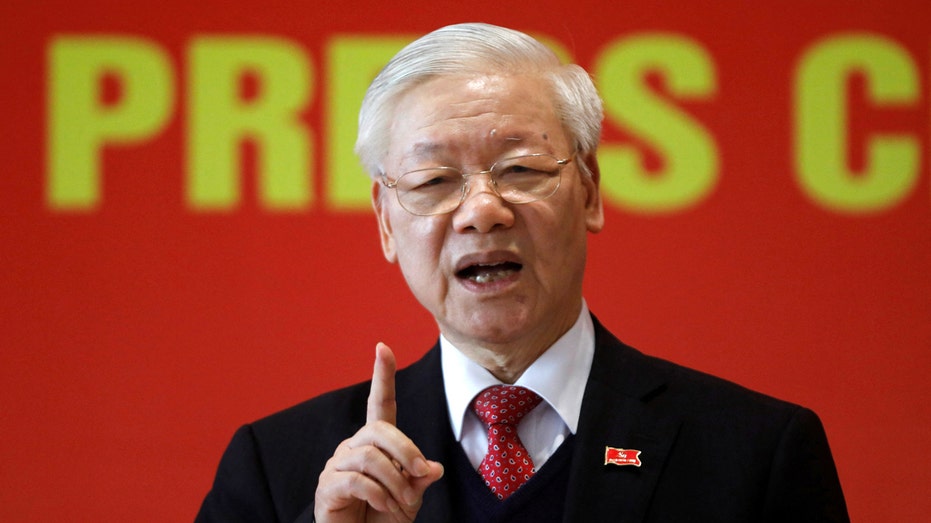Nguyen Phu Trong, Vietnam's top Communist Party leader, dead at 80

Vietnam's ruling Communist Party chief Nguyen Phu Trong died on July 19, 2024, after holding the country's most powerful position for 13 years. He was 80 years old.
Vietnam's ruling Communist Party chief Nguyen Phu Trong died on Friday after holding the country's most powerful position for 13 years. He was 80.
He died in the early afternoon "due to old age and serious illness," the Communist Party said in a statement on its website, without elaborating further on the nature of the illness.
The statement cited information from Trong's medical team, saying he died "after a period of illness, despite being wholeheartedly treated by the Party, the State, a collective of professors, doctors, leading medical experts."
AUTOPSIES OF AMERICANS, VIETNAMESE FOUND DEAD IN A BANGKOK HOTEL IDENTIFY TRACES OF CYANIDE
The country's president, To Lam, had taken over Trong's duties on Thursday when the party announced the ageing leader needed to focus on medical treatment.
The party will need to decide whether Lam will continue as acting party general secretary until the current term for the post expires after the next Congress in 2026, or whether it will elect a new candidate before then from within its ranks.
Although Vietnam officially has no paramount ruler, Trong was the country's most powerful figure as party general secretary and had been in the post since 2011.
He secured a third term in 2021 after a rule limiting holders to two terms as party boss was waived, demonstrating his strength and significant political clout in a party that has ruled Vietnam for nearly half a century.
But in recent months, he appeared fragile in public events and missed several top-level meetings.
Trong was educated in the Soviet Union and was regarded as a Marxist-Leninist ideologue. In 2017 he unleashed what many saw as a China-style crackdown on corruption, known as "blazing furnace," under which hundreds of officials were investigated for graft and many forced to quit, including cabinet ministers, a parliament chairman and two state presidents.
Lam, a former chief of the powerful internal security agency, has been a key player in that campaign and was elected president in May after his predecessor resigned amid accusations of unspecified wrongdoing.
